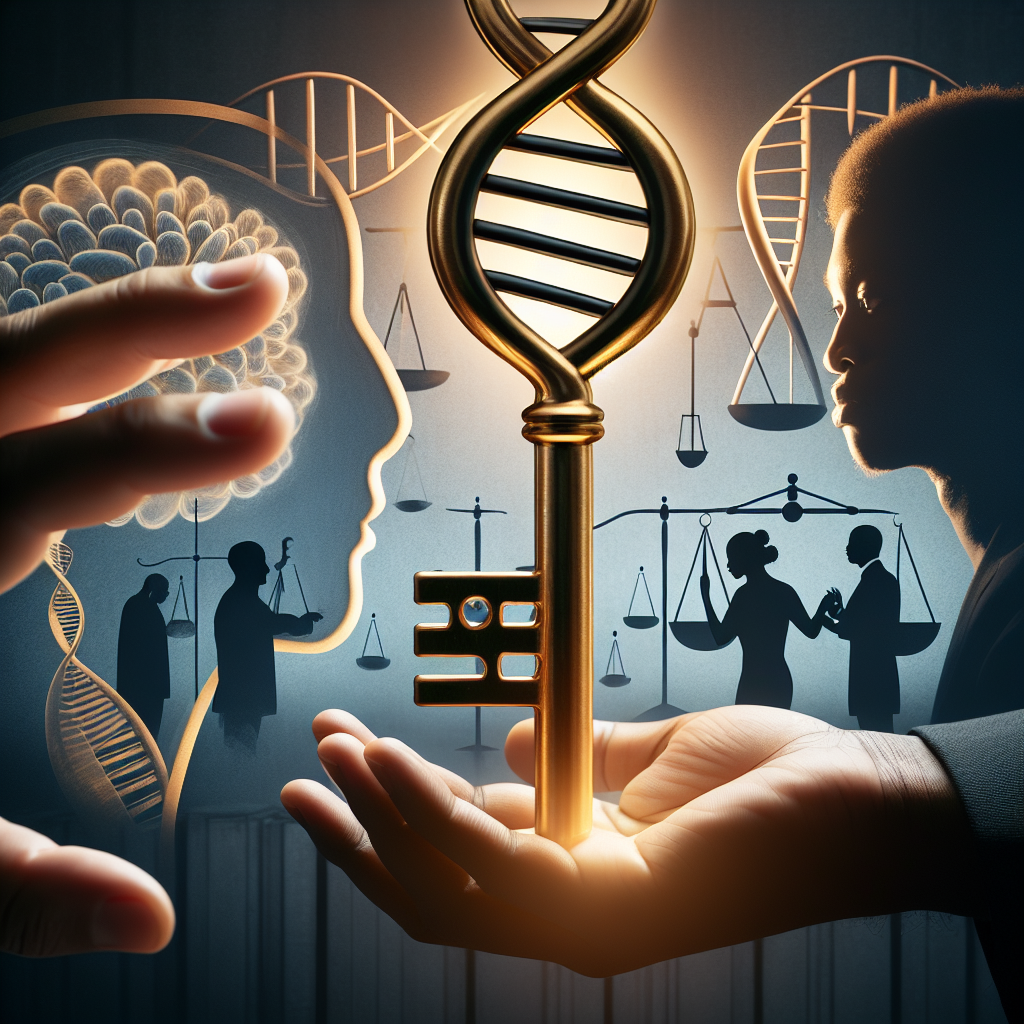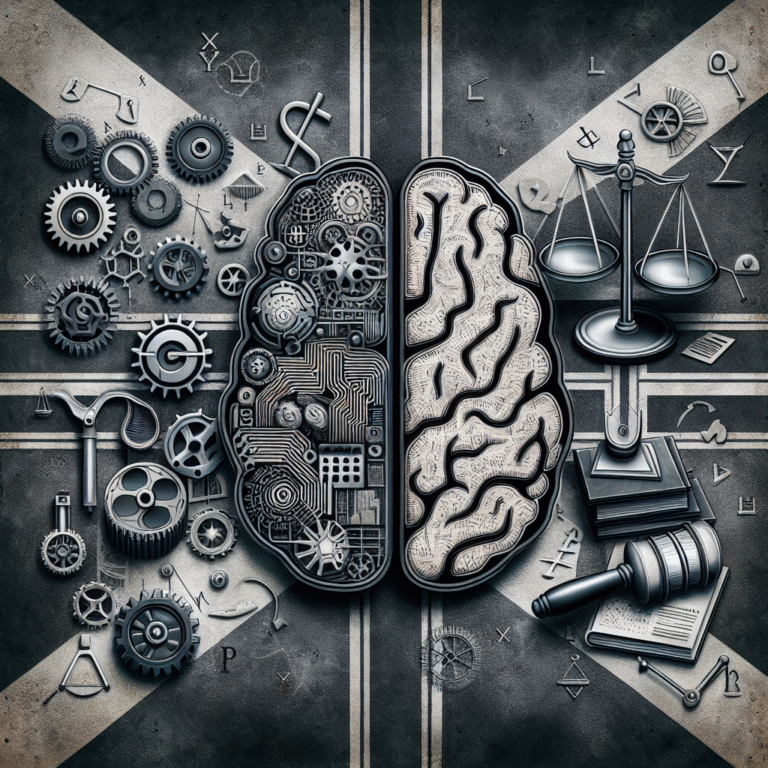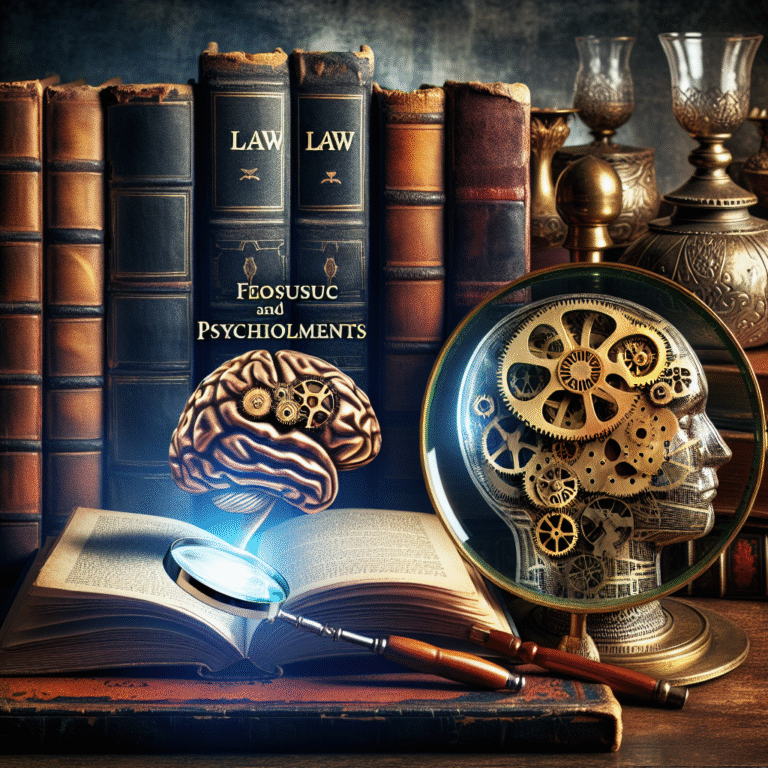
Introduction
Imagine a world where the truth lies hidden beneath layers of complexity, leaving justice teetering on the brink of uncertainty. In today’s fast-paced legal landscape, the integration of forensic assessment has become a pivotal ally in the pursuit of justice. Unlocking the Truth: The Role of Forensic Assessment in Criminal Justice goes beyond mere academic interest; it has real-world implications that can make or break a case. As every crime scene tells a story, forensic assessments act as the vigilant narrators, decoding evidence to illuminate the path toward truth.
From DNA analysis to psychological evaluations, forensic assessment encompasses a wide range of disciplines that work together to ensure that justice is served. This article delves deep into the intricate world of forensic assessments, unveiling their myriad roles within the criminal justice system. Through case studies, data analysis, and expert insights, we will explore how these assessments are more than just tools—they are essential frameworks that unlock the intricate truths of criminal cases.
Understanding Forensic Assessment
What is Forensic Assessment?
At its core, forensic assessment refers to the application of psychological principles and methods in legal contexts. It serves multiple purposes, including evaluations of competency to stand trial, assessments of criminal responsibility, and providing insights into risk management. By employing standardized tests and evidence-based approaches, forensic professionals can provide crucial information that assists judges, attorneys, and juries.
Why Forensic Assessment Matters
Unlocking the Truth: The Role of Forensic Assessment in Criminal Justice is paramount because it enhances the accuracy of judicial decisions. By systematically evaluating individuals involved in legal proceedings, forensic assessments help clarify:
- The mental state of defendants at the time of the offense.
- The competency of an individual to understand the court’s proceedings.
- Risk factors associated with future offending behavior.
Areas of Focus in Forensic Assessment
- Psychological Evaluations: These involve assessing an individual’s mental health status, often using tools such as the MMPI (Minnesota Multiphasic Personality Inventory).
- Substance Abuse Assessments: Understanding addiction’s role in criminal behavior provides insight into rehabilitation needs.
- Risk Assessment: Evaluating the likelihood that an individual may re-offend helps inform sentencing and parole decisions.
The Forensic Assessment Process
Steps in Conducting a Forensic Assessment
- Referral: Typically initiated by a lawyer or judge, outlining the specific questions to be answered.
- Data Collection: Gathering collateral information from court documents, interviews, and psychological tests.
- Evaluation: Utilizing standardized instruments and structured interviews to assess the individual.
- Report Writing: Compiling findings into a comprehensive report that addresses the referral questions.
- Testimony: Forensic experts may be called to testify in court regarding their findings.
Case Study: The Importance of Comprehensive Assessments
Consider the case of State vs. Adams, where a defendant was accused of a violent crime. During the forensic assessment, psychologists discovered the defendant had a long history of untreated mental health issues, which influenced his behavior. The assessment not only provided insights for the defense but also highlighted the need for mental health interventions, fundamentally altering the trajectory of the case.
Real-World Applications of Forensic Assessment
Criminal Responsibility and Insanity Defense
In many jurisdictions, claiming an insanity defense hinges on the findings of a forensic assessment. Evaluations must determine whether the defendant understood the nature of their actions or could distinguish right from wrong at the time of the crime. This delicate balance requires skilled forensic professionals to navigate the nuances of mental illness.
Example Case: The infamous John Hinckley Jr. trial, where forensic assessments played a critical role in establishing his insanity at the time of an assassination attempt on President Reagan, is a seminal example of the implications of forensic assessment.
Competency to Stand Trial
Forensic assessments are key to ensuring defendants understand the charges against them and can participate in their defense. This process safeguards the rights of individuals who may be unfit for trial.
Case Study: In the case of Joey L., a young man with significant cognitive disabilities, a forensic evaluation revealed that he could not grasp the legal concepts involved in his case. This not only delayed proceedings but ultimately led to alternative measures for treatment rather than punishment.
Sentencing and Risk Assessment
Risk assessment tools have been gaining traction in criminal justice systems, guiding judges toward informed sentencing. These assessments help predict the likelihood of recidivism and inform decisions about parole and rehabilitation programs.
Analysis: The usage of risk assessment tools, such as the COMPAS (Correctional Offender Management Profiling for Alternative Sanctions), has sparked discussions about racial bias and the ethical implications of risk calculations in sentencing.
Challenges in Forensic Assessment
Ethical Considerations
The integration of forensic assessment in criminal justice must be approached with ethical rigor. Forensic evaluators must balance their roles as neutral experts while also being advocates for mental health treatment in the criminal justice system.
Accuracy and Bias
As with any assessment tool, there exists the potential for bias—whether through examiner subjectivity or the limitations of standardized instruments. The validity of results hinges on the evaluator’s training and the diversity of cases he or she encounters.
Unlocking Advanced Techniques in Forensic Assessment
Incorporating Technology
Emerging technologies such as AI-driven analytics are beginning to play a role in forensic assessments. These innovations hold the potential to enhance precision in evaluations, though they are not without controversy. The application of technology must ensure fairness and transparency.
Multidisciplinary Approaches
Collaboration between disciplines—psychiatrists, psychologists, criminologists, and attorneys—enhances the accuracy of forensic assessments. This multidisciplinary approach can yield deeper insights and more reliable conclusions.
Conclusion
Unlocking the Truth: The Role of Forensic Assessment in Criminal Justice represents a vital intersection of psychology, law, and social justice. As society evolves, so too does the responsibility of the legal system to utilize the best tools available to uphold justice. Forensic assessments not only illuminate the truth in complex cases but also provide a pathway toward rehabilitation and understanding.
In closing, it is essential for legal professionals, policymakers, and the public to advocate for the continued development and ethical application of forensic assessments. By embracing these vital evaluations, we take significant strides toward a criminal justice system grounded in truth and fairness.
FAQs About Forensic Assessments
-
What qualifications do forensic assessors need?
- Forensic assessors typically hold advanced degrees in psychology or psychiatry, along with specialized training in forensic evaluation methods.
-
How accurate are forensic assessments in predicting behavior?
- While many forensic assessments are grounded in scientific methods, the accuracy can depend on a variety of factors, including the tools used and the evaluator’s expertise.
-
Can forensic assessments be challenged in court?
- Yes, the methodologies and findings presented in forensic assessments can be challenged by either party during a trial.
-
What role do forensic assessments play in juvenile cases?
- In juvenile cases, forensic assessments can help determine the best interventions, guiding courts toward rehabilitation rather than punishment.
- Are forensic assessments only used in criminal cases?
- While commonly associated with criminal cases, forensic assessments are also used in civil cases, including custody disputes and competency evaluations.
By understanding the critical role of forensic assessment in criminal justice, we can work towards a more informed and just legal system—one that values truth and justice above all.
















